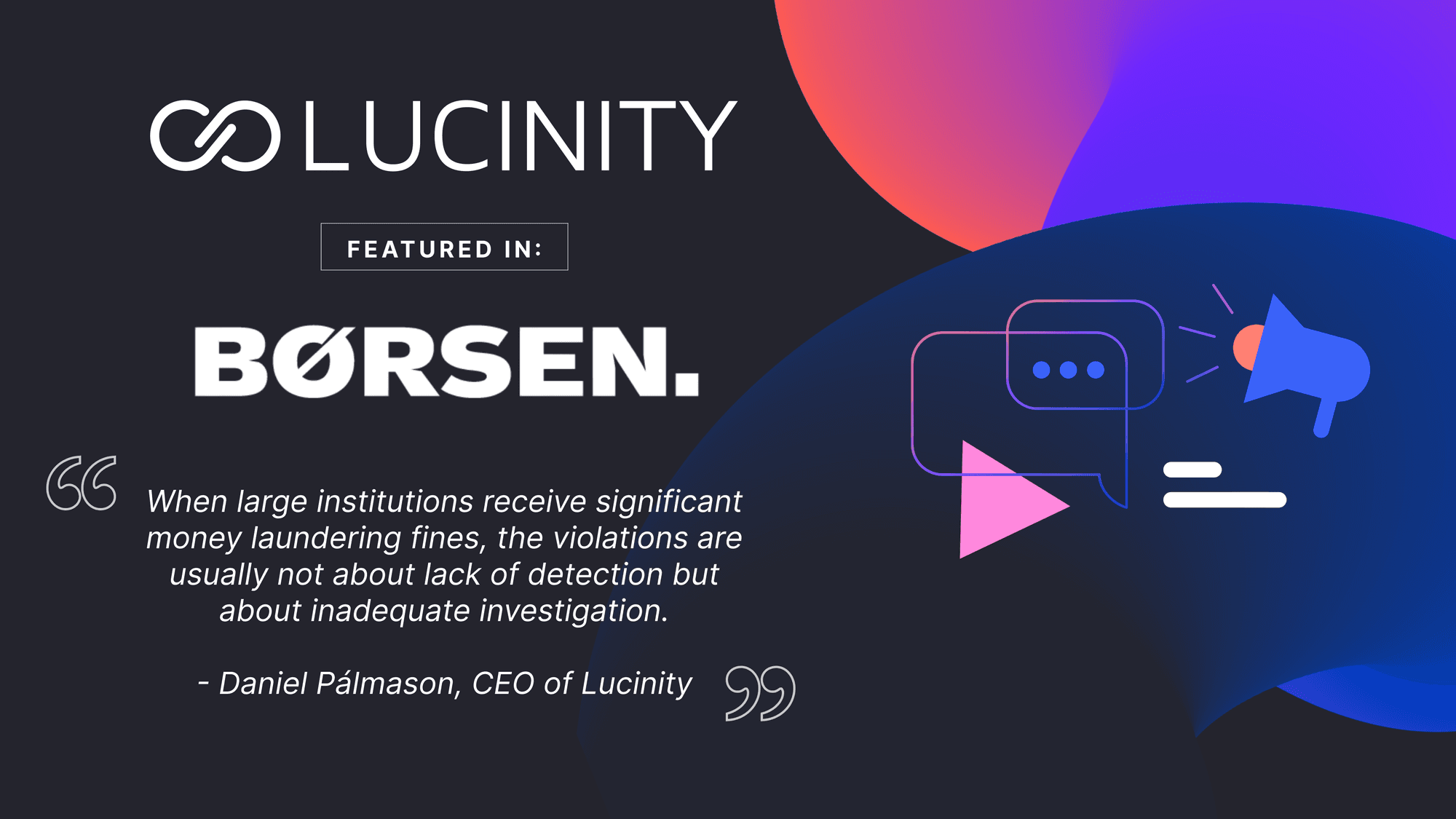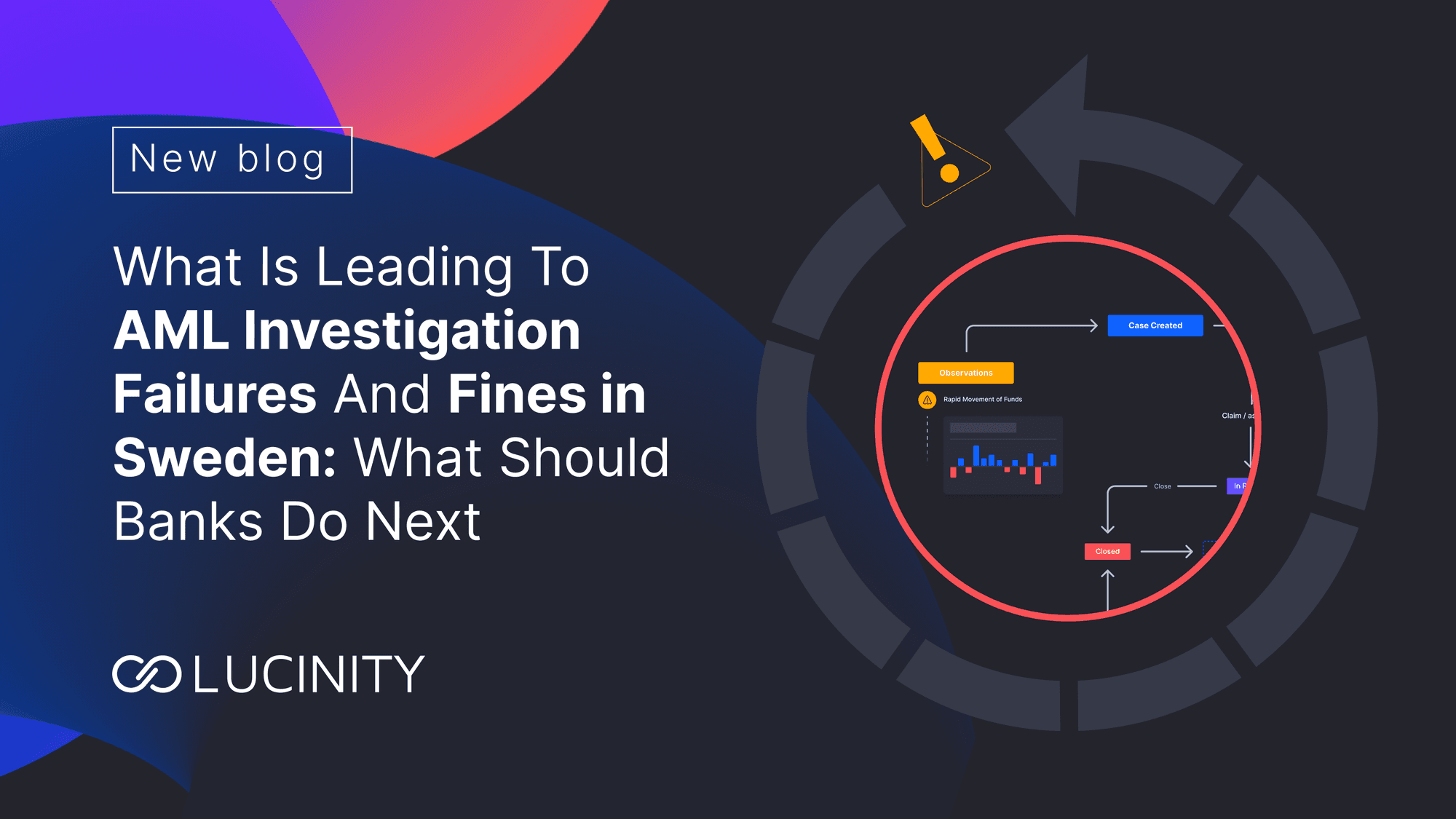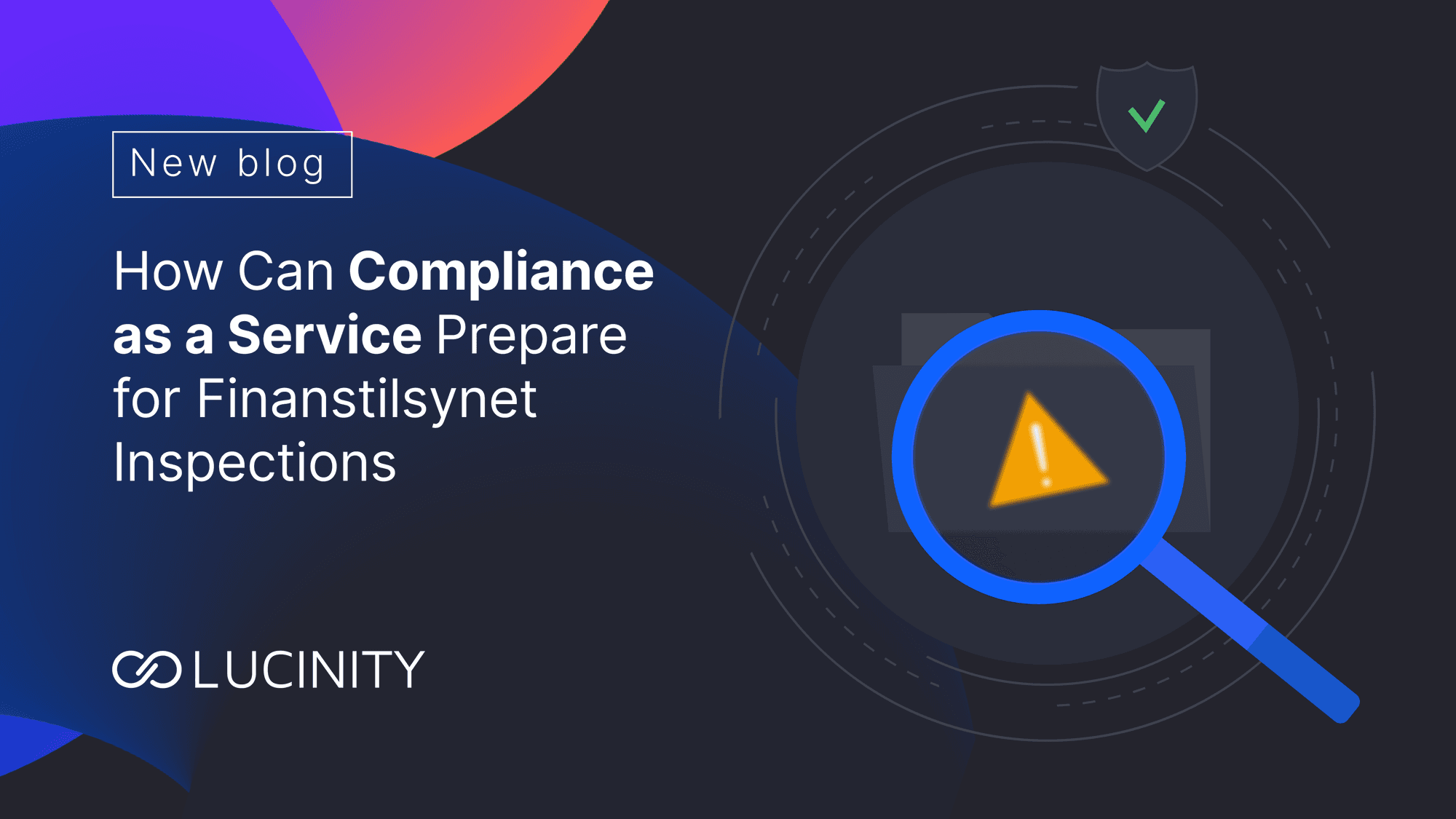Top 10 New Skills for Compliance Analysts and Investigators in 2025
Explore the top 10 skills compliance analysts must develop in 2025, including data analysis, AI integration, and cross-border expertise.
Compliance analysts must possess skill that go beyond checking the regulatory boxes. With the increased sophistication of financial crime and the rising use of new technology in compliance operations, organizations are raising the bar for what they’re looking for from compliance professionals.
Yet, there’s a growing disconnect between the tools available and the skills needed to use them effectively. In a recent PwC survey, 47% of respondents said their organization lacks the skills and experience to manage and use advanced data.
In 2025, the most effective compliance analysts will combine traditional regulatory knowledge with new capabilities like automation, data interpretation, and cross-border adaptability. This blog explores the top 10 new skills that compliance analysts need to succeed in this environment.
1. Proficiency in AI and Automation Tools: A Must-Have for Compliance Analysts
As compliance analysts step into 2025, one of the most valuable skill sets is the ability to work confidently with AI and automation tools. These systems are becoming embedded in daily compliance operations, helping teams detect risk, process information, and streamline decision-making.
Recent studies indicate that although most companies are putting resources into AI, just 1% view their adoption as fully developed. The biggest barrier to scaling is the lack of clear guidance and timely action from leaders who are slow to respond. Here’s why this skill is essential for compliance analysts today:
- Accelerating Routine Investigations: Generative AI can be used to summarize documents, extract key information, and organize findings in consistent formats, allowing compliance analysts to focus on risk analysis and decision-making rather than manual documentation.
- Improving Consistency and Speed with Automation: Automation tools help ensure tasks like report generation, workflow updates, or data tagging are completed quickly and uniformly. This minimizes the human error that often slows investigations or triggers false positives.
2. Advanced Data Analytics and Interpretation: Turning Data into Action
Compliance has become data-focused, which requires analysts to move past simple spreadsheet tasks. In 2025, the role demands the ability to interpret, work with, and extract insights from complicated datasets. Financial institutions are flooded with transactional data, alerts, audit trails, and external sources.
The Global Compliance Survey 2025 reports that 56% of participants identified data reliability and quality as their primary concern. This was followed by 47% pointing to limited data availability with a shortage of skilled professionals. Here’s what makes this a priority skill for compliance analysts:
- Making Sense of Large Volumes of Data: Analysts should be skilled in data querying and analysis, knowing how to pull the right data sets, clean them, and apply logic to extract what matters. Tools like AI-powered AML case management, automatic SARs filing, etc., are now essential in many teams.
- Recognizing Patterns and Red Flags: Understanding historical and real-time trends enables analysts to flag deviations from the expected scenario. For example, a sudden rise in international transfers might require deeper review. Analysts who identify such outliers early can prevent escalation or detect fraud in its early stages.
3. Regulatory Fluency: The Core Language of Compliance Analysts
In 2025, regulatory fluency remains one of the most fundamental yet rapidly transforming skills for compliance analysts. Regulatory frameworks are becoming broader, more data-centric, and increasingly international. Analysts must keep pace with changing requirements while also interpreting how they apply to real-world scenarios.
The 27th Global CEO Survey found that the regulatory environment was seen as the number one barrier to business reinvention, with 64% of leaders agreeing that regulatory complications strongly inhibit their ability to deliver value. Here’s why organizations now expect this from compliance analysts:
- Adapting to Multi-Jurisdictional Regulations: As businesses operate globally, compliance analysts are often responsible for ensuring adherence across multiple regulatory environments. This includes understanding region-specific regulations such as the General Data Protection Regulation (GDPR) in Europe and the Bank Secrecy Act (BSA) in the U.S.
- Staying Updated on Regulatory Change: The scope of compliance is expanding to include areas such as environmental, social, and governance (ESG) standards, AI regulations, and digital finance policies. To keep pace, analysts need dependable systems and tools to monitor regulatory changes and apply them effectively within internal procedures.
4. Strategic Communication: Essential for Every Compliance Analyst
Strong communication skills have always been valued, but in 2025, they are considered indispensable for compliance analysts. When the stakes involve potential fines, reputational damage, and regulatory intervention, confident and contextual communication becomes important.
Organizations are aware of this problem because a recent survey shows that when evaluating the foundations of a strong compliance culture, 55% of companies point to senior management support, and 48% consider employee training, communication, and collaboration with compliance teams as key factors.
All of these depend strongly on clear and consistent communication across all levels of the organization. Communication as a skill is important for compliance analysts for the following reasons:
- Explaining Complex Concepts in Plain Language: Regulations and investigations are filled with technical terminology, but not every stakeholder is familiar with compliance jargon. Analysts must simplify legal or risk-heavy information into clear language that enables informed decision-making.
- Producing Clear, Actionable Documentation: Writing effective reports, alerts, or recommendations is a core task. Whether it’s a Suspicious Activity Report (SAR), a risk summary, or an internal memo, documentation has to be accurate, audit-ready, and understandable to internal stakeholders and external reviewers.
5. Ethical Judgment and Decision-Making: The Human Core of a Compliance Analyst’s Work
No matter how advanced compliance systems become, the ability to apply sound ethical judgment remains a uniquely human strength. In 2025, with strict regulations regarding the ethical use of agentic AI in AML compliance and rising public expectations, analysts are expected to uphold integrity in every decision.
Compliance costs account for an average of 19% of annual revenues, depending on company size. Yet, the financial consequences of non-compliance are estimated to be 2.71 times higher than the cost of maintaining a robust compliance function. For this reason, compliance analysts must develop the following skills:
- Making the Right Call in Ambiguous Situations: Compliance often deals with situations where legal direction is uncertain or still developing. Analysts need to rely on both their expertise and judgment to determine whether a decision fits legal requirements and reflects responsible conduct.
- Role Modeling Ethical Behavior Across Teams: When compliance analysts uphold ethical standards, they reinforce a culture of accountability. Their decisions influence how frontline staff, managers, and vendors interpret what is considered appropriate behavior.
6. Technical Proficiency in Compliance and Investigative Systems: A Growing Expectation for Compliance Analysts
In 2025, compliance analysts are not expected to rely solely on manual processes or basic office tools. The job now demands solid technical proficiency, specifically in the systems that support transaction monitoring, regulatory reporting, and investigative workflows.
This change in expectations is visible in a recent McKinsey survey, which found that 13% of organizations have hired AI compliance specialists, and 6% are bringing in AI ethics experts to understand the increasingly technical and risk-sensitive nature of compliance. Here’s why this skill matters for compliance analysts:
- Understanding Core Compliance Tools: Analysts are expected to be familiar with the platforms used in daily investigations. Whether reviewing alerts or tracking case status, the ability to use these tools quickly and effectively reduces delays and supports audit readiness.
- Managing Investigative Workflows: Compliance analysts should understand how workflows are organized, how alerts are escalated, what initiates review processes, and how reporting moves across the organization.
7. Project Management Capabilities: Enabling Compliance Analysts to Drive Impact at Scale
As compliance tasks become automated, analysts are often expected to manage multiple projects, whether it's implementing a new reporting framework or coordinating a regulatory audit. In 2025, compliance analysts who understand how to structure, track, and deliver on multi-phase work add tremendous value to their teams and their organizations.
The change to project-based thinking also aligns with broader operational trends: organizations want leaner teams, fewer delays, and measurable results. Analysts who can apply structured methodologies can help turn compliance from a reactive necessity into a proactive performance driver. Here’s how mastering this helps compliance analysts stand out:
- Structuring Work with Clarity and Timelines: Whether it’s preparing for a regulatory inspection or overhauling an alert handling process, compliance analysts must know how to break tasks into stages, assign responsibilities, and keep stakeholders aligned on deliverables.
- Tracking Progress and Mitigating Delays: Analysts with basic project management knowledge can foresee delays, communicate issues early, and adapt plans without losing momentum. This improves not just execution but trust across the organization.
8. Continuous Learning and Adaptability: A Core Strength for Future-Ready Compliance Analysts
In a field where regulations transform, risks evolve, and technologies emerge almost weekly, one of the most valuable traits for compliance analysts in 2025 is the ability and willingness to adapt and learn.
Whether it’s understanding new anti-money laundering (AML) patterns, adjusting to ESG disclosures, or learning to interpret AI-generated insights, compliance analysts must consistently refresh their knowledge to stay relevant and effective. Here’s why this skill matters for compliance analysts:
- Keeping Pace with Regulatory and Technological Transformation: The volume and speed of regulatory change are increasing along with the sophistication of technology used in fraud, risk scoring, and case management. Analysts who build a habit of ongoing learning through certifications, webinars, or peer networks are better positioned to respond quickly and accurately to new requirements.
- Responding to New Expectations from Leadership: With many organizations redefining their risk postures, compliance analysts are often asked to take on unfamiliar roles or address new use cases (e.g., crypto risk, algorithmic auditing). Adaptability ensures analysts can take on these challenges without becoming stressed.
9. Risk Assessment and Management: A Non-Negotiable Skill for Compliance Analysts
While many skills for compliance analysts have evolved with technology, the ability to assess and manage risk remains a constant pillar of the role. In 2025, this skill has only grown in importance. Organizations need analysts who can spot compliance issues after the fact and anticipate where the next risk will come from.
Risk often appears with subtle patterns, policy misalignments, or operational blind spots. Compliance analysts are increasingly expected to interpret this uncertainty and build actionable responses. Here’s why this skill matters for compliance analysts:
- Connecting Regulatory Requirements to Real-World Impacts: A key part of risk assessment is understanding how regulations map to business operations. Compliance analysts must interpret how changes in legislation, such as consumer data laws or sanctions requirements, affect frontline practices and customer interactions.
- Helping Build Risk-Aware Culture: Analysts help build awareness by sharing findings, raising concerns early, and suggesting preventive actions. Compliance analysts have an important role in building a culture where risk is owned and addressed effectively.
10. Cultural Competence and Global Awareness: A Key Differentiator for Compliance Analysts
With financial services operating across borders, compliance analysts need to grasp both the regulatory rules and the local factors that influence how compliance is approached in different regions.
Compliance frameworks may be universally guided by principles like transparency and fairness, but how those principles are interpreted, enforced, and communicated varies widely between countries, industries, and customer bases.
According to recent surveys of in-house legal teams, 61% cite building local infrastructure and 33% highlight understanding local legal systems as their biggest challenges in cross-border work. Here's why this skill matters for compliance analysts:
- Managing Cross-Jurisdictional Compliance Programs: Compliance analysts often work with regional teams or global regulatory standards that require different documentation formats, timelines, or communication protocols. Being culturally aware helps reduce friction, avoid missteps, and improve response quality.
- Meeting Regulatory Expectations in Emerging Markets: As businesses expand into new markets, especially in regions with changing regulatory ecosystems, compliance analysts must understand the local context. This includes language barriers, political environments, and regional enforcement practices.
How Lucinity Helps Compliance Analysts Master 2025 - Ready Skills
Lucinity is built around enabling compliance analysts to work smarter while becoming more capable. As the expectations of compliance professionals grow, the platform directly supports the development of real-world, in-demand skills within the flow of day-to-day work.
Learning Through Luci: Luci the AI-agent, helps compliance analysts absorb and apply new investigative techniques. Every time Luci is used to summarize a case, visualize transactional behavior, or flag a potential risk, analysts are actively in a learning process.
Instead of relying on theory or off-platform training, analysts deepen their understanding of investigative reasoning and regulatory logic through their casework. This accelerates the growth of technical fluency, decision-making clarity, and investigative consistency.
Skill Building Through Luci Studio: With Luci Studio, compliance analysts have direct access to a no-code interface that allows them to create and manage investigative workflows.
In this environment, analysts strengthen their grasp of data logic, develop skills in outcome-focused reporting, and build a clearer understanding of AI governance. It also strengthens adaptability by encouraging iterative learning and ownership over compliance routines.
Case Management Designed for Capability: Lucinity’s Case Manager is more than just an organizational interface. Bringing all case data, signals, documentation, and decision trails into a single system gives analysts a complete view of the case lifecycle.
This structure helps analysts understand the specifics of their tasks and how their work ties into compliance strategy, audit preparation, and organizational priorities. As they work within this system, they build stronger skills in process design, audit awareness, and clear documentation.
Final Thoughts
The role of compliance analysts in 2025 is defined by adaptability. Analysts today are expected to apply regulatory expertise alongside technical skills, practical decision-making, and the ability to operate in changing and international settings. As demands grow, developing these abilities becomes increasingly necessary.
The following takeaways summarize the most important changes transforming the profession:
- Compliance analysts are now active users of AI and automation, not passive recipients of alerts.
- Fluency in data analysis and investigative systems has become core to the role.
- Ethical decision-making and regulatory insight still matter, but they must now be applied at a greater scale and speed.
- Skill development must happen within the tools and systems that analysts use every day.
To learn these new skills and explore how AI-powered AML compliance tools accelerate productivity while enabling long-term growth, visit Lucinity!





